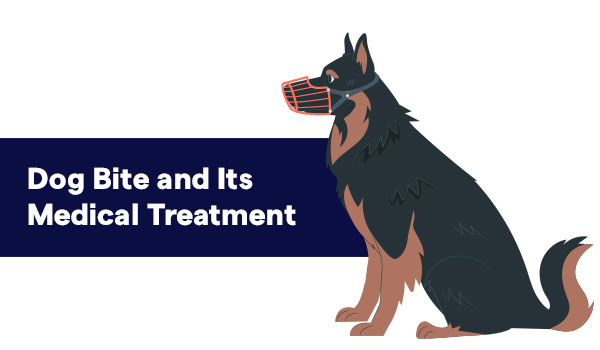
A dog bite occurs when a dog's teeth break the skin. In most cases, the bite is not deep and can be treated with basic first aid. However, severe bites can damage the skin, muscles, tendons, nerves, and bones. In some cases, the dog may have rabies, a viral disease that can be fatal if not treated promptly.
The risks associated with dog bites depend on several factors, such as the depth of the bite, the location of the bite, and the dog's vaccination status. Some of the possible risks include:
1. Infection: A dog's mouth is full of bacteria, and if the bite breaks the skin, it can lead to an infection.
2. Rabies: If the dog that bites you has rabies, you may contract the disease if you do not receive prompt medical treatment.
3. Tetanus: A toxin-producing bacteria is the source of the deadly nervous system illness tetanus. Muscle spasms are brought on by the condition, especially in the jaw and neck muscles. Lockjaw is a popular name for tetanus.
4. Injury: A severe dog bite can cause damage to the skin, muscles, tendons, nerves, and bones.
Dog bite symptoms
Dog bite symptoms can be divided into two stages: the prodromal stage and the acute neurological stage.
The prodromal stage typically lasts 2-10 days after infection and is characterized by non-specific flu-like symptoms such as fever, headache, fatigue, and muscle weakness. Patients may also experience pain or tingling at the site of the bite or exposure. During this time, the virus is multiplying in the body and moving towards the brain.
The acute neurological stage follows the prodromal stage and usually lasts 2-7 days. This stage is marked by more severe symptoms, which can include:
1. Agitation: Rabies can cause restlessness, irritability, and hyperactivity. Patients may become easily agitated and have difficulty sleeping.
2. Anxiety: Patients may experience intense anxiety and fear, sometimes with no apparent cause.
3. Confusion: As the virus attacks the brain, patients may become confused and disoriented. They may have difficulty speaking or understanding language.
4. Hallucinations: Rabies can cause hallucinations, which can be visual or auditory. Patients may see or hear things that are not there.
5. Paralysis: In the later stages of rabies, patients may become paralyzed. This can start with weakness or numbness in the limbs and progress to complete paralysis.
It is important to note that not everyone who is infected with the rabies virus will experience all of these symptoms. Some patients may have a milder form of the disease, while others may progress rapidly to the acute neurological stage.
Dog bite treatment
The dog bite treatment depends on the severity of the bite and the risks associated with it. In most cases, basic first aid is sufficient, but if the bite is severe or if there is a risk of infection, dog bite treatment is necessary from the medicine hospital in India. Here are the steps you should take:
1. Clean the Wound: Wash the wound with soap and water for at least 15 minutes to remove any dirt or bacteria.
2. Pressure: Apply pressure to the wound with a clean cloth to stop any bleeding.
3. Apply Antiseptic: Apply an antiseptic, such as hydrogen peroxide or iodine, to the wound to prevent infection.
4. Seek Medical Attention: If the bite is severe, if there is a risk of infection or rabies, or if you have not received a tetanus shot in the last five years, seek medical attention immediately.
5. Get a Rabies Vaccine: If you are at risk of rabies, you will need a rabies vaccine. The Rabies vaccine includes a series of injections administered over several weeks.
6. Tetanus Shot: You must get a tetanus shot if you have not received one in the last five years.
It is also crucial to remember that prevention is the best way to avoid dog bites. Here are some tips you can follow to prevent dog bites:
1. Avoid approaching or petting unfamiliar dogs, especially if they are eating or sleeping.
2. Teach children how to approach dogs safely and avoid pulling their tails or ears.
3. Never disturb a dog that is caring for puppies.
4. Do not run away from a dog or scream if it is chasing you.
5. If a dog approaches you, stay still and avoid making eye contact.
6. If a dog knocks you down, curl into a ball and protect your face and neck with your hands and arms.
By following these tips and seeking medical attention promptly if a dog bites you, you can help prevent serious complications and stay safe.
To learn more about dog bites, book an appointment with Sir Ganga Ram Hospital which offers expert medical care for dog bites and other injuries.